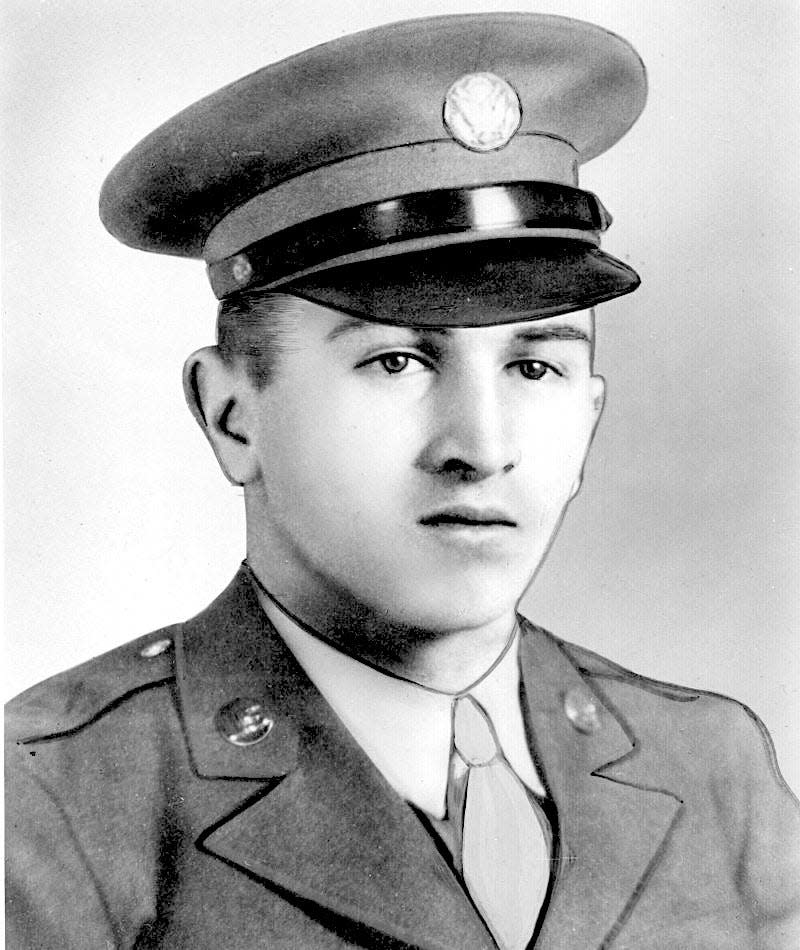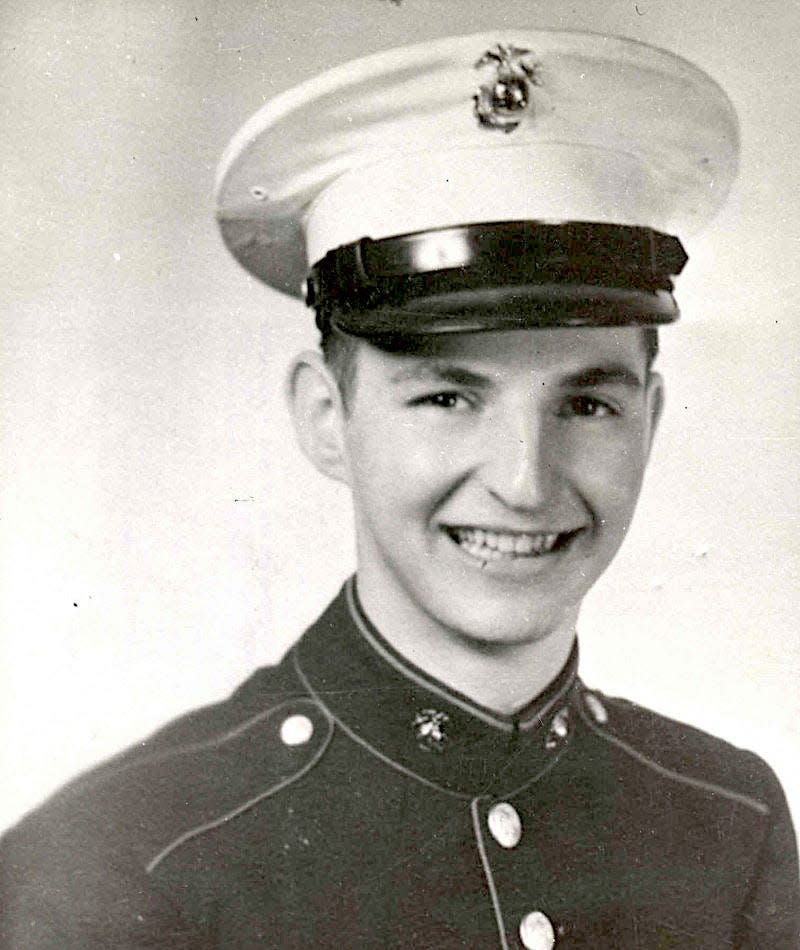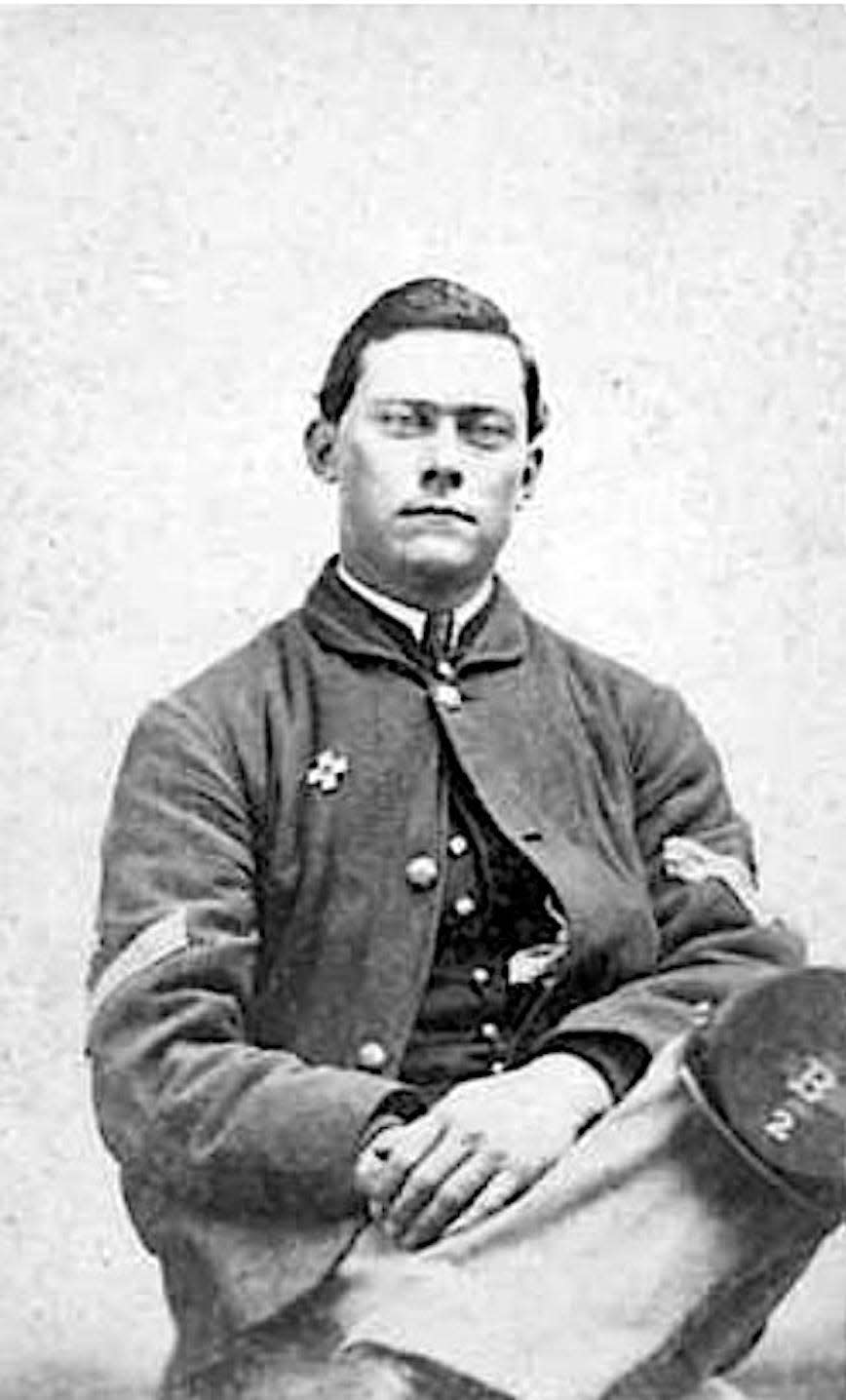South Kingstown recognizes Medal of Honor recipients. How the heroes earned that award
Last week we reported on South Kingstown’s designation as a Medal of Honor Town, and the commemoration of the town’s servicemen still missing in action.
The three South Kingstown Medal of Honor recipients are:
World War II: Sgt. William Grant Fournier, US Army

Joe "Tiger" Patrick, state commander of the Veterans of Foreign Wars, hails from South Kingstown. Sergeant Fournier was his great-uncle. According to Patrick, Billy Fournier was adopted by relatives in South Kingstown shortly after he was born in Connecticut in June 1913. After eighth grade he left school and went to work. Sometime in the early 1930s he enlisted in the Navy as William Gadrow, serving a five-year hitch.
By 1940 he was working as a hired hand on a farm in Winterport, Maine, and in September of that year he enlisted in the Army as William G. Fournier.
Fournier earned the Medal of Honor on Jan. 10, 1943, at Mount Austen, Guadalcanal. He was a machine-gun section leader in Company M, 35th Infantry Regiment, 25th Infantry Division. A Japanese assault killed his gunner, wounded his assistant gunner and put an adjoining gun crew out of action. Refusing an order to withdraw, Sgt. Fournier rushed to the idle gun and held it up by its tripod to increase its field of fire. With the help of 47-year-old T5 Lewis Hall, he broke up the Japanese attack, inflicting heavy casualties on the enemy. Hall was killed at the gun, and Fournier was badly wounded and died three days later. Both men were posthumously awarded the Medal of Honor on June 5, 1943.
On behalf of President Franklin D. Roosevelt, MG Sherman Miles presented Fournier’s award to Henry Gadrow, his foster father. The ceremony, originally scheduled for the White House, took place Oct. 28, 1943, at the athletic fields of Rhode Island State College in South Kingstown. Fournier’s family donated the medal to Veterans of Foreign Wars Post 916 in Wakefield.
Originally buried in the Guadalcanal Cemetery, Fournier’s remains were moved in 1949 to the National Memorial Cemetery of the Pacific in Honolulu.
Korean War: Cpl. David Bernard Champagne, USMC

David Champagne was born in Maine in 1932. His family moved to Wakefield sometime around 1940. David graduated from South Kingstown High School in 1951. His motivation for joining the Marine Corps is unknown, but he enlisted right after graduating. A year later, he found himself in combat in Korea.
Corporal Champagne was posthumously awarded the Medal of Honor for his actions on May 28, 1952, while serving as a fire team leader in Company A, First Battalion, Seventh Marine Regiment, First Marine Division.
“… Champagne led his team through a veritable hail of intense enemy machine-gun, small-arms and grenade fire before reaching the crest of the hill,” said his citation.
Wounded in the leg while repelling the first enemy counterattack, Champagne fought on. A Chinese grenade landed within a foot of Champagne and his men. He grabbed the grenade and threw it back at the approaching enemy. Unfortunately, it exploded as it left his hand, blowing him out of the trench and mortally wounding him.
By coincidence, one of the men he saved was PFC William Powers of South Kingstown, who was slightly wounded in the blast that killed Champagne.
On July 26, 1953, BG Reginald H. Ridgeley presented the Medal of Honor on behalf of President Dwight D. Eisenhower to Reginald Champagne, Corporal Champagne’s teenage brother. Sadly, Reginald drowned in a swimming accident only three weeks later. Corporal Champagne is buried in a family plot in Waterville, Maine.
In 1997, U.S. Rep. Bob Weygand sponsored a bill to dedicate the new postal facility in Wakefield as the David B. Champagne Post Office Building.
Civil War: Sgt. William James Babcock, USA

NOTE: The only heroism medal the War Department officially awarded during the Civil War, Indian Wars, Spanish-American War and Philippine Insurrection was the Medal of Honor.
As the National Park Service explains, “As the only military award authorized … the Medal of Honor was presented for meritorious actions that would not necessarily be recognized by the Armed Services today.”
Starting with World War I, other, lesser awards were authorized and the more demanding standards for award of the Medal of Honor were enacted.
Sergeant William Babcock was awarded the Medal of Honor at the direction of President Glover Cleveland for his actions on April 2, 1865, at Petersburg, Virginia, while serving as color sergeant of Company B, 2nd Rhode Island Volunteers – an Army of the Potomac.
Babcock had been promoted from the ranks for his bravery at the battle of Winchester in 1864.
According to the March 5, 1895, Providence Journal, “[Babcock] made a name for himself as a conspicuously brave and daring soldier, and was for his bravery given charge of the United States flag …
“Sergeant Babcock, bearing the new colors presented to the regiment a short time before, had been at the head of the column, and he was one of the first men on the parapet of the rebel fort, where he planted the stars and stripes, the first Union flag in the works of Petersburg. With him were Color Sgt. Thomas Parker with the flag of the state of Rhode Island and Pvt. Maurice O’Hearn. All three men were recommended in dispatches the next day, and Parker received his medal of honor some time ago.”
The regimental commander, Lt. Col. Rhodes, recommended that all three men receive a “medal of honor.”
Both Gen. Oliver Edwards, 3rd Brigade commander, and Gen. Frank Wheaton, commanding the 1st Division, endorsed the award recommendation.
“Sergeant Parker afterwards applied for and received his medal, but Babcock … did not ask for his and did not get it.”
At a 1894 reunion of the 2nd Rhode Island Volunteers held in Wakefield, Babcock was encouraged by his mates to follow up with Washington, which he did. Babcock received his Medal of Honor on March 2, 1895, almost 30 years after the actions that earned him the award.
Babcock died at his home in South Kingstown on Oct. 29, 1897, at the age of 56. He was buried in Riverside Cemetery, South Kingstown.
Event report
RI National Guard hockey game: On Friday, March 31, the Rhode Island Air National Guard hockey team (RI Reds) skated against the Army National Guard team (RI Minutemen) for the Adjutant General’s Cup. Before an enthusiastic crowd at URI’s Boss Ice Arena, the Army team prevailed, 8-3. The event raised more than $2,500 to support the Vet Center in Warwick.
Calendar
Saturday, May 6, 6 p.m.: Westerly Armory Member Appreciation Evening. The event will honor four people for service: Alexis Ann, Amanda Nall, William Siano and Shawn Lacey. Entertainment will follow a stellar dinner. Tickets are $20 for Armory members and $35 for non-members. Purchase at the Armory or online at www.westerlyarmory.com. Doors open at 5 p.m. Event begins at 6 p.m.
This article originally appeared on The Providence Journal: South Kingstown Medal of Honor recipients recognized

